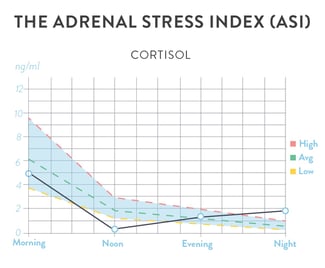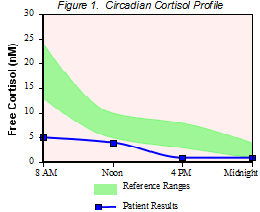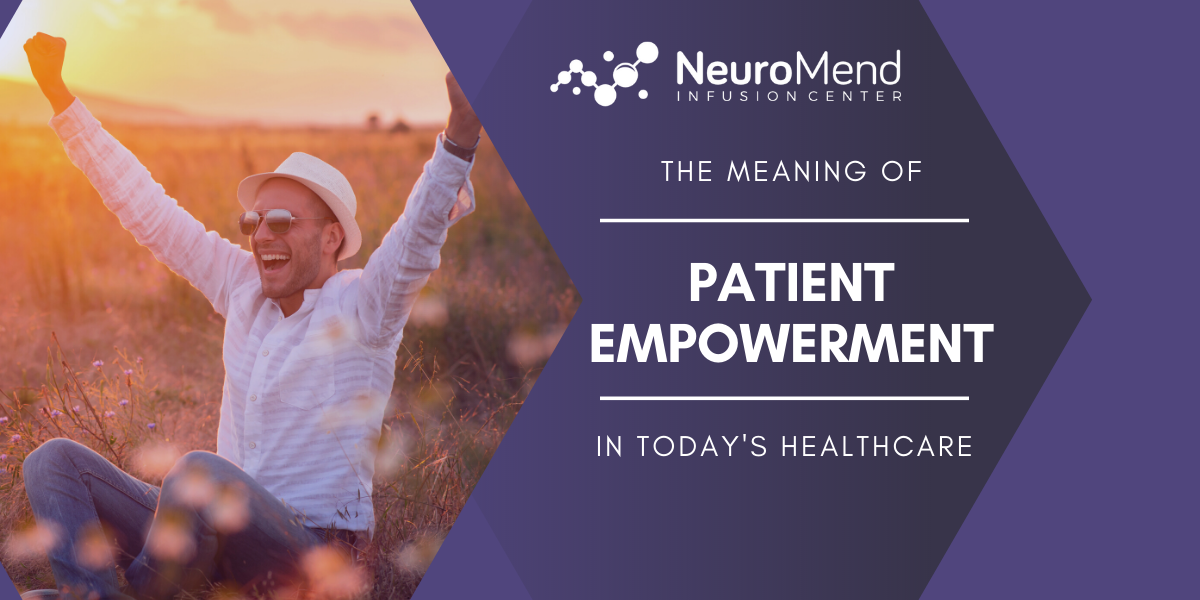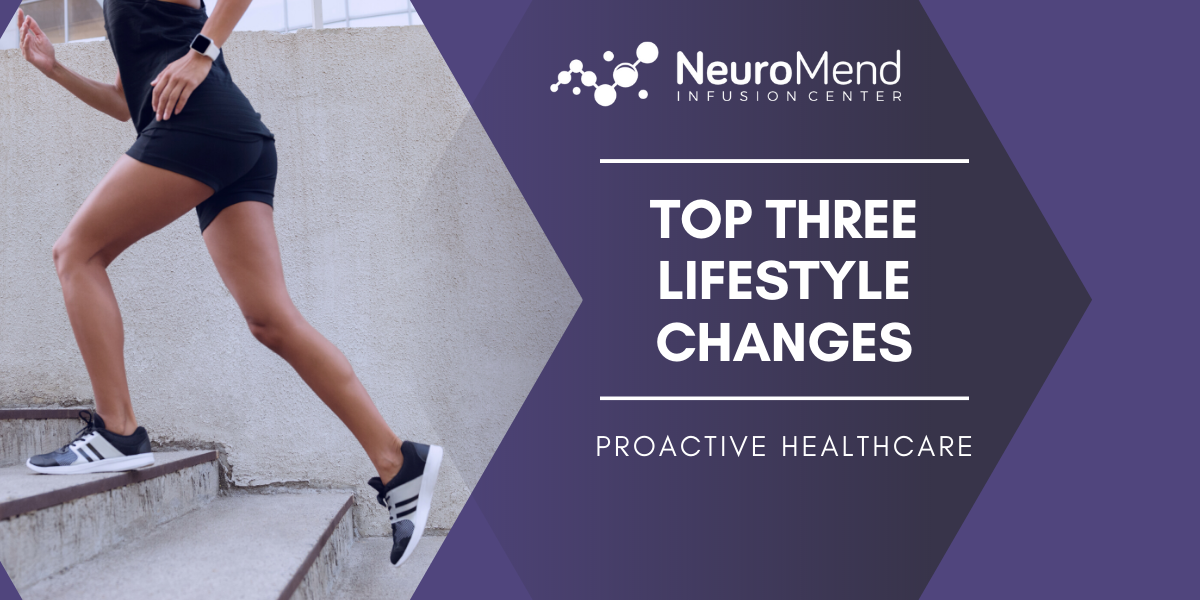.png?width=751&name=Facebook%20-%20Featured%20Image%20-%20NeuroMend%20(6).png) Have you ever heard the mantra: “More doesn’t necessarily equal better. Better outcomes are the only predictor of qualifying better input"? Because performance is the only measure of performance, right? Keep reading to get a little more insight on this hot topic.
Have you ever heard the mantra: “More doesn’t necessarily equal better. Better outcomes are the only predictor of qualifying better input"? Because performance is the only measure of performance, right? Keep reading to get a little more insight on this hot topic.
One of the contributors to such an insidious problem with our American culture is the belief that adding more will somehow improve the situation. Yet, as with many things in life, the body doesn’t function within these self-fabricated laws of the universe. To a currently over-stressed mind and body, more exercise and less food (the common, yet ineffective, 1980’s weight loss algorithm) is contrarily detrimental. You can’t move more and eat less when the body needs more rest and increased energy for recovery.
Wait, what?
“Hold up!” You might be thinking. “You want us to eat more and move around less in order to lose body fat and feel better?”
In a sense, yes. But follow along and we will attempt to explain why. We will do our best to keep this at a higher level for the sake of time and your precious attention span. One thing is crystal clear: People are frustrated and confused with adding more intensity and volume to their workouts and cutting more calories, with the only thing to show for it is more fatigue, an overwhelming feeling of defeat, and an ever-increasing waistline and/or number on the scale. So, what gives?
What doesn't kill you makes you stronger
As with most bodily functions and performance improvement, it has to do with hormones. More specifically, cortisol.
“But I thought that which doesn’t kill us will make us stronger?”
Sadly, not in today’s workforce. The modern reality is more like, “that which doesn’t kill us makes us....well, fat."
You have probably heard of cortisol through your vast internet searches of “tired but wired”, “how much caffeine is too much?”, and my personal favorite, “how many prescription sleeping pills must I take to counteract my prescription stimulants?” But, the issue here, aside from how frightening these Dr. Google requests may seem, is how misleading conventional medicine can be when attempting to treat this elusive adrenal phenomenon.
The HPA Axis
Most general practitioners will draw some blood and look at a single cortisol marker. And while this lab marker can signal whether cortisol is high or low, it doesn’t paint a vivid enough portrait of exactly what the adrenals, and more specifically the HPA axis, is trying to tell you. Without getting too granular in our explanation, we will start with this: one single cortisol measurement is not enough to show you or the doctor what is going on with your stress signaling and response.
Common adrenal dysfunction or HPA Insufficiency symptoms might include:
- Difficulty waking up in the morning
- Difficulty falling asleep at night
- Brain fog/difficulty concentrating
- Unexplainable food cravings
- Inability to handle stress
- Overuse of caffeine or the necessity to inject caffeine just to function
- A weak immune system
And the most effective way to balance out your adrenal and stress signaling is to discover what they are doing throughout the day. The best test to assess this is a 4 or 6 point salivary cortisol test. You simply spit in four different tubes throughout the day and then assess what your stress signaling looks like once the results come in. You want to look at and assess your individual “cortisol curve.” This is what is created once you connect the dots when your cortisol levels have been plotted. Let's look at a couple of examples below:
On both charts, “normal” would be the green plotted line in the middle. You want your cortisol levels to rise in the morning (which is necessary for an appropriate awakening response) and you want them to dwindle down throughout the day.
Wired and Tired
If your cortisol is through the roof at bedtime, hello “wired but tired.”
If your cortisol levels are super low in the morning, hello 4 cups of coffee just to get off of the couch.
If your levels are suppressed throughout the day, hello increased body fat, weakened immune system, and insatiable sugar cravings.
The key to solving the cortisol riddle is to look at the curve and respond to it accordingly. If your levels are too high, you will benefit from calming the adrenals. If on the other hand you try to throw in more exercise or more CrossFit/HIIT workouts, then you will inevitably crash and worsen your situation.
Heart Rate Variability
Every year, Fitbit sells millions of wearables to Americans looking to improve their health. And they very well can accomplish this with a “step counter” if they are currently desk jockeys and couch potatoes. But for most avid exercisers, this is counterintuitive. More activity with currently exhausted adrenals will only exacerbate the issues. This is why our focus is more on morning Heart Rate Variability measurements as opposed to how many steps you have taken in a day.
What you want to measure is your daily “recovery debt.” You want to ensure that however much stress is added to the body during the day is compensated for with adequate recovery while you sleep. As you accumulate more stress and don’t replenish with adequate recovery, you will find yourself in more and more recovery debt. This will be shown through lower and lower HRV numbers and eventually with a skewed cortisol curve.
This is why it's important to take a thorough 360-degree view of patients. Going off of just what the patient shares isn’t always enough. Then again, looking at just laboratory data doesn’t give the subjective feedback that is needed from the patient. A coach, doctor, or other medical professionals need both to help develop the most effective approach to attaining the patient's goals.
Swim Against the Current
Do yourself a favor and stop floating down mainstream. Swim against the pop-culture current and start measuring the most beneficial markers of a healthy stress response. If you don’t want to feel or be described as sick, tired, thick, or wired, get better answers by measuring the appropriate markers.
WhaT DO YOU DO NEXT?
Do you feel like you are clearly too stressed in your life or job to even think about exercising? You should probably start figuring out things to remove from your stressful life before adding another stressor to your plate.
Meditation > Medication
NUTRITION TIMING
Are you currently exercising habitually but not seeing any results? Take a look at your recovery debt and assess how well you are allowing your body to bounce back. Need too much coffee just to operate your car and laptop? You may want to assess your diet and see if how your insulin sensitivity (or insensitivity) is looking currently.
Cortisol and insulin are antagonists (they hate one another). This is why when you have a high carb breakfast you feel like you need a nap. This is also why adding carbs to your dinner is so effective for sleep. The insulin spike caused by ingesting carbs at this time will decrease cortisol levels, thus allowing you to fall asleep faster. Nutrition has way more to do with timing than it does with counting calories.
Contact Us
At NeuroMend, we can test your levels and provide you with an in depth evaluation. Our friends at HPHI can then consult with you, help adjust your levels, and give you a personalized treatment plan. We can guide you through the process of finding and treating the root causes of your symptoms. Contact us for more information or schedule a free consultation with us.
Disclaimer: As of September 29, 2023, NeuroMend no longer offers Spravato treatments. We apologize for any inconvenience and encourage you to consult with our team or your healthcare provider for alternative options.
ABOUT NEUROMEND INFUSION CENTER
 We are an Evidence-Based Center of Excellence and the leading provider of Ketamine Infusions, IV Infusions and Ketamine Consulting Services for Ketamine Clinics and IV Therapy Clinics.
We are an Evidence-Based Center of Excellence and the leading provider of Ketamine Infusions, IV Infusions and Ketamine Consulting Services for Ketamine Clinics and IV Therapy Clinics.
We Provide Effective Treatment For The Following Conditions: Major Depressive Disorders, Post-traumatic Stress Disorder (PTSD), Bipolar Depression, Obsessive Compulsive Disorder (OCD), Chronic Migraines, Severe Anxiety, Fibromyalgia and Chronic Pain Syndromes












